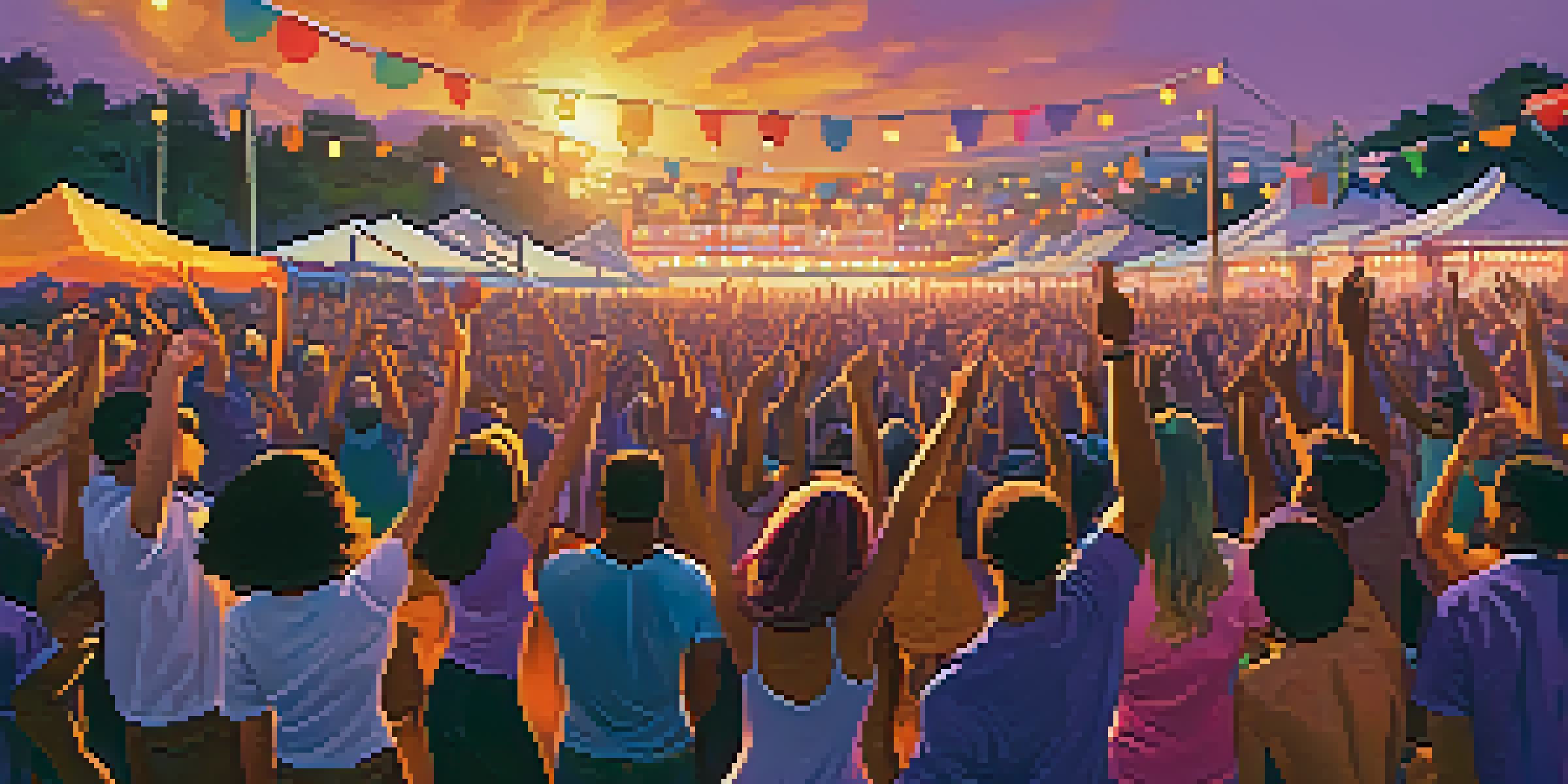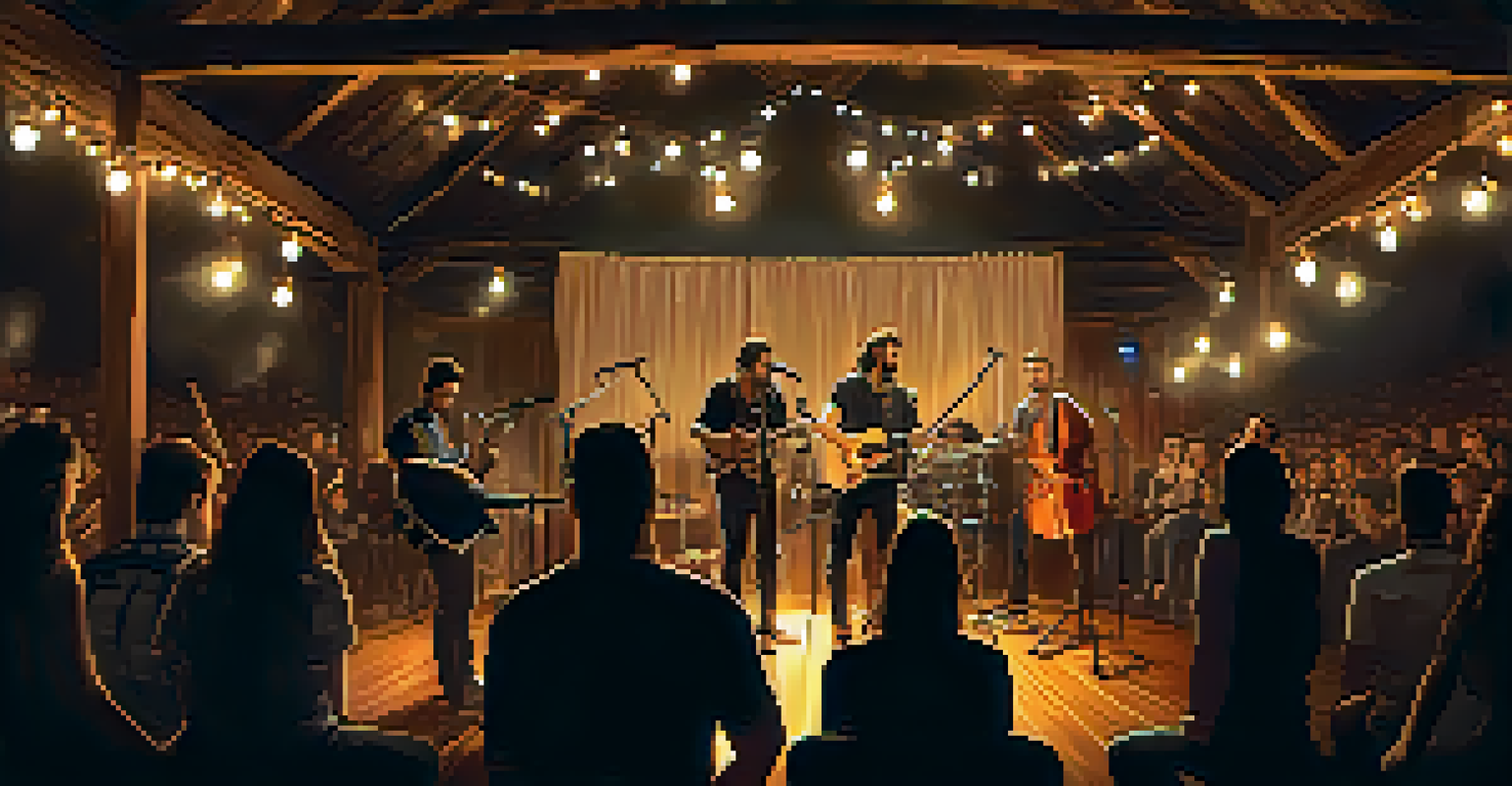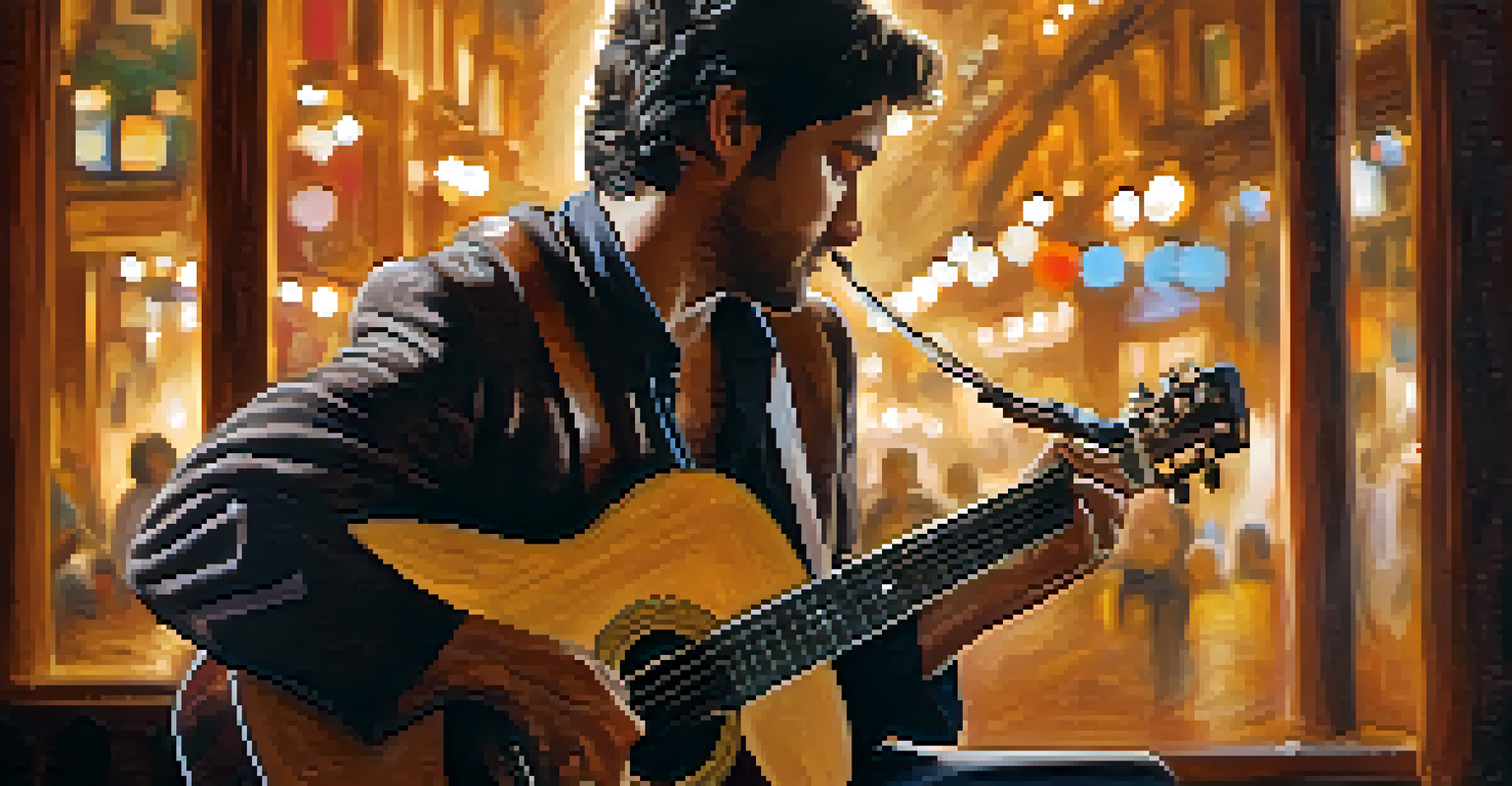Time Perception and the Experience of Live Music Events

Understanding Time Perception in Everyday Life
Time perception is the subjective experience of time, which can vary greatly from person to person. It’s not just about the ticking of a clock; how we perceive time can be influenced by a variety of factors like attention, emotion, and context. For example, when you're having fun, time seems to fly by, but during a boring meeting, it can feel like an eternity.
Time flies when you're having fun.
This phenomenon is particularly interesting in the context of live music events, where the immersive experience can alter our perception of time. As the music plays and the crowd sways, we often lose track of time entirely, absorbed in the rhythm and energy of the moment. It’s this captivating environment that prompts us to reflect on how music influences our experience of time.
Ultimately, understanding how we perceive time can help us appreciate the nuances of live music. Our emotional state, the atmosphere, and the engagement with the performance all contribute to how we experience the passage of time. This sets the stage for exploring how live music events uniquely shape our perception.
The Role of Emotion in Time Perception
Emotion plays a crucial role in shaping our perception of time, especially in high-energy environments like concerts. When the music resonates with us emotionally, our brains can process time differently. For instance, a moving ballad may seem to stretch time, allowing us to savor the moment, while an upbeat song can make us feel like the hours have flown by in an instant.

Research shows that positive emotions can lead to a sense of time flying, while negative emotions might cause time to drag. At a live music event, the collective energy of the audience amplifies these emotional experiences. When everyone around you is dancing and singing, it creates an exhilarating atmosphere that can warp your sense of time.
Emotion Alters Time Perception
Our emotional state during live music events can significantly warp our perception of time, making moments feel either fleeting or extended.
This interplay between emotion and time perception enhances our enjoyment of live music. It’s not just about the songs played, but how they make us feel in that moment, creating lasting memories that often feel timeless.
The Influence of the Environment on Time Perception
The environment of a live music event plays a pivotal role in how we perceive time. Factors such as lighting, stage setup, and the overall vibe contribute to our immersive experience. For instance, a dimly lit venue with vibrant colors can create a dreamlike quality that makes time feel suspended, drawing us deeper into the performance.
Music can change the world because it can change people.
Conversely, an open-air festival with the sun setting and a cool breeze can evoke a sense of freedom and expansiveness. In these moments, we may find ourselves lost in the music, forgetting the concept of time altogether. The environment acts as a catalyst, enhancing our emotional connection to the music.
Thus, the setting of a live performance is not just a backdrop; it actively shapes how we experience the passage of time. This relationship between environment and time perception invites us to appreciate the artistry involved in creating unforgettable live music experiences.
Cognitive Engagement and Attention in Live Music
Cognitive engagement is another factor influencing our time perception at live music events. When we focus intently on the performance, our brain processes information more rapidly, which can make time feel like it's moving differently. This is why we sometimes feel a concert has ended too soon, as our attention is fully captivated by the performance.
Conversely, if our minds wander or we find ourselves distracted, the same duration can feel extended. This is especially true in longer sets where the energy might fluctuate. When a band takes a moment to engage with the crowd, it can either enhance our experience or cause our attention to drift, affecting our sense of time.
Environment Shapes Experience
The setting of a live music event, from lighting to ambiance, plays a crucial role in how we perceive time and enhances our emotional connection to the performance.
In essence, the level of cognitive engagement we bring to a live music event can significantly alter our time perception. By immersing ourselves fully in the experience, we can create memories that feel richer and more expansive.
The Impact of Shared Experience on Time Perception
One of the most unique aspects of live music is the shared experience it fosters among attendees. When we are surrounded by fellow fans, the collective energy can amplify our emotional response, making time feel more fluid. The laughter, cheers, and even the sing-alongs contribute to a communal atmosphere that enhances our enjoyment.
This shared experience often leads to a phenomenon known as ‘social synchrony,’ where the group moves and reacts in harmony with the music. This synchronization can create a sense of timelessness, as we feel connected not just to the music but to each other. It’s a powerful reminder of the social nature of music-making.
Ultimately, the shared experience at live music events can create a feeling of unity that transcends time. These moments become etched in our memories, often feeling more significant and longer-lasting than they actually are.
The Relationship Between Anticipation and Time Perception
Anticipation plays a fascinating role in our perception of time at live music events. The build-up before a concert, as we wait for the headliner to take the stage, can stretch our sense of time. This is especially true when the excitement in the crowd reaches a fever pitch, making the wait feel both exhilarating and prolonged.
As the lights dim and the first notes echo, the anticipation transforms into exhilaration, altering our perception further. The transition from waiting to experiencing can make time seem to collapse, as the moment we’ve been waiting for finally arrives. In this way, anticipation enhances our connection to the performance, making it feel more significant.
Shared Experiences Create Timelessness
The collective energy and interaction among attendees at live music events foster a shared experience that can make time feel fluid and memorable.
Therefore, the relationship between anticipation and time perception can enhance our overall experience. It adds layers of excitement and meaning to live music, reminding us that the journey to the moment is just as important as the performance itself.
Concluding Thoughts on Time Perception and Live Music
In reflecting on the relationship between time perception and live music events, it becomes clear that our experience is shaped by a multitude of factors. From emotional engagement to environmental influences and shared experiences, each element contributes to how we perceive the passage of time. Live music is more than just an auditory experience; it’s an emotional and cognitive journey.
By understanding these dynamics, we can enhance our enjoyment of live performances. Whether it's focusing on the emotional connection, embracing the atmosphere, or sharing the moment with others, each aspect enriches our experience of time. This awareness allows us to be more present, creating memories that last long after the music fades.

As we continue to explore and participate in live music events, let’s embrace the intricate dance of time perception. It’s an invitation to savor each moment, appreciate the artistry, and celebrate the profound connections we share through music.